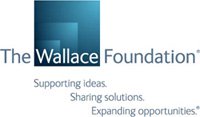New Tip Sheets Aim to Help City Agencies

FOR IMMEDIATE RELEASE
Contact: Lucas Held
212-251-9782
(June 6, 2012) Data can power after-school efforts. For after-school decision-makers who want to know how, a new set of data tip sheets from The Wallace Foundation shows the ways that data can assist in everything from determining where programs are needed to how to make them better.
Designed for city agencies, after-school program providers, intermediary organizations, parents and others, these easy-to-use guides zero in on data use for four tasks key to more effective after-school: evaluating program quality, ensuring programs are accountable to funders, mapping program supply and demand, and supporting advocacy. A fifth tip sheet examines data-sharing arrangements that can give decision-makers the information that's necessary. A sixth sheet offers an overview.
"We know that data-driven decisions can lead to higher-quality programs that benefit children's well-being and development beyond school hours," said Lucas Held, communications director of The Wallace Foundation. "We believe that this set of six tip sheets will be an invaluable tool to help people make effective decisions that will improve access to programs, enhance their quality and increase youth participation."
The tip sheets also offer concrete examples of how different organizations have put data to work for them. For instance, a statewide after-school group in New York mapped publicly-funded programs in the state to inform discussion of proper funding allocations. An after-school effort in Providence, R.I., encouraged providers to raise the quality of programs by offering incentives to those that met metrics in attendance, enrollment and other areas. And the executive director of the Children's Commission in Jacksonville, Fla., used a color-coded community map to successfully defend her after-school budget before the city council. The map showed a grim picture in one neighborhood, where few kids regularly go to after-school programs and many repeat a grade – in contrast to another neighborhood with high rates of after-school participation and low rates of grade retention. Her strategy worked: The city council trimmed her 2012 budget by only five percent during a time of severe municipal belt-tightening.
"To make the case for more resources in a tight budget environment, it's essential for leaders and advocates of expanded learning opportunities to have good data," says Lucy N. Friedman, president of The After-School Corporation, a national nonprofit organization based in New York that works to change public policy and direct sustainable public funding to support expanded learning opportunities for children.
"The Wallace Foundation has created a tremendous resource for after-school professionals looking to strengthen their data systems and understand how their work fits into the national context," said Elizabeth Devaney, quality consultant at the Providence After School Alliance in Rhode Island. "These tips sheets will help both new and experienced communities apply lessons learned to make better use of the data they collect."
The tip sheets are designed in part to bolster efforts under way in a number of cities to coordinate the work of municipal agencies, schools, nonprofit youth programs and other institutions vital to providing after-school services. The Wallace Foundation calls this approach "system-building." Collecting and analyzing reliable information can equip decision-makers with the knowledge they need to make sound choices for after-school systems.
####
The Wallace Foundation is an independent, national foundation dedicated to supporting and sharing effective ideas and practices that expand learning and enrichment opportunities for children. The foundation maintains an online library of lessons at www.wallacefoundation.org about what it has learned, including knowledge from its current efforts aimed at: strengthening education leadership to improve student achievement; helping disadvantaged students gain more time for learning during the summer and school year; enhancing after-school opportunities; expanding arts learning opportunities for children and teens; and developing audiences for the arts.
